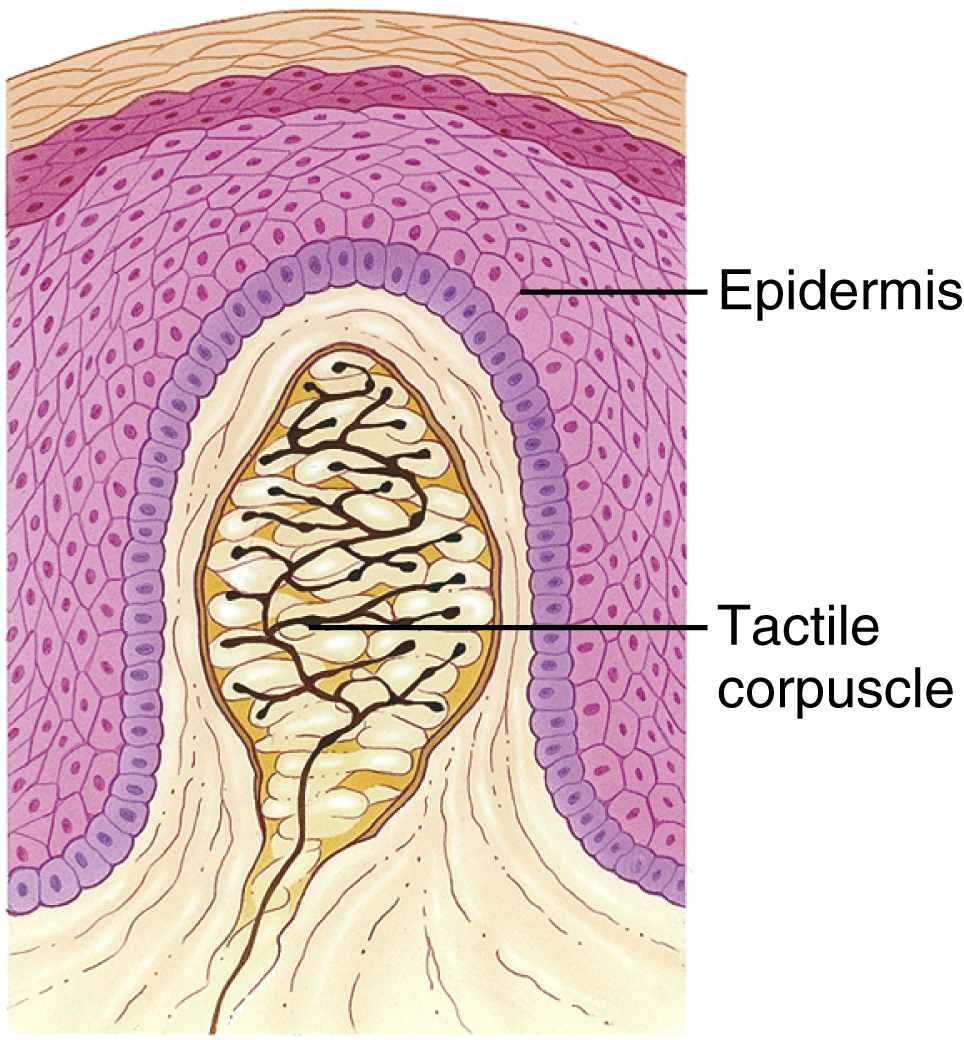Meissner’s corpuscle /mīs″nərz/ [Georg Meissner, German anatomist, 1829–1905; L, corpusculum, little body] , any one of a number of small, special pressure-sensitive sensory end organs with a connective tissue capsule and tiny stacked plates in the dermis of the hand and foot, the front of the forearm, the skin of the lips, the mucous membrane of the tongue, the palpebral conjunctiva, and the skin of the mammary papilla. A single nerve fiber penetrates each oval capsule, spirals through the interior, and ends as a globular mass. Also called tactile corpuscle. Compare Golgi-Mazzoni corpuscles, Krause’s corpuscles.

